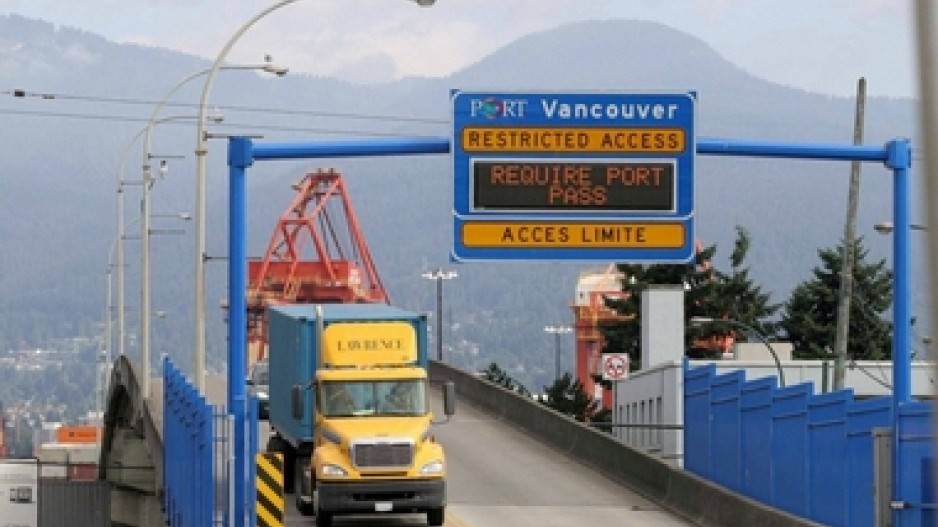Unhappy with the enforcement of existing legislation, container terminal truckers are pinning their livelihoods on a change in government.
On Sunday, April 2, a large contingent of non-union and union truckers, representing Unifor and the United Truckers Association (UTA), attended an event protesting the once dove-adorned Joint Action Plan that ended a crippling strike three years ago.
Up to 700 people attended the “standing room” meeting, said Gavin McGarrigle, Unifor’s B.C. director.
(See also: Vancouver waterfront labour unrest resurfaces)
“This was one of the largest meetings I’ve seen since the Joint Action Plan was signed. We always have a good turnout at meetings but this was one of the largest,” said McGarrigle, in an interview with Business in Vancouver on Sunday.
Port congestion, unpaid wait times, poor wages and allegations of undercutting were key factors leading to the February 2014 strike. The port paralysis quickly brought the Vancouver Fraser Port Authority (VFPA), the federal and provincial governments, and trucking representatives to the table to quickly hammer out the 14-point plan and the province’s Container Trucking Act.
However, as of March 16, the Office of the B.C. Container Trucking Commissioner reports that 61 audits have been completed or are underway resulting in $1.7 million returned, without interest, to container truckers. The truckers’ point of contention – once the elephant and, now, the Blue Whale in the room – is that pay rates are not being enforced.
The patience of truckers has run out.
“Basically, everyone was unanimous that the Christy Clark government had to go,” said McGarrigle of the meeting. “The truckers had (previously) spent time on time on strike. (We) had the document that had the signature of the premier on it and, although we saw some improvement in terms of the Container Trucking Act, there’s not enough funds for enforcement.”
In early 2015, both Unifor and UTA threatened a strike unless the negotiated pay rates were enforced, spurring meetings with federal and provincial transportation ministers. Will it take a strike to get everyone back to the table? The truckers’ first hope is the May 9 B.C. election.
McGarrigle said both organizations at the meeting unanimously endorsed the B.C.NDP.
“We’ve constantly been complaining to both levels of government ever since this went to effect, says McGarrigle. “The reality is … they haven’t really done anything.”
What if the Liberals win?
“I think they better do something to respond to the truckers or there’s going to be more action,” said McGarrigle. “There are an awful lot of people whose livelihoods they see are going down the drain and they need to see some action on it. The need for change isn’t going to go away regardless of the election result.”




